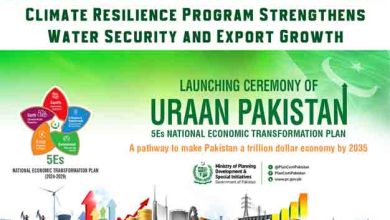Devastating Policies Keep Indus River Colonised, Say Activists at Climate Justice Conference
Activists at Karachi’s climate justice conference decry extractive state policies that keep the Indus River colonised. Learn why they demand river personhood and decolonised development.
The Indus River remains colonised, declared environmental activists, lawyers, and civil society members during a groundbreaking climate justice conference in Karachi. The event — the Indus Resistance Conference — condemned exploitative state policies and the erasure of indigenous knowledge, demanding urgent reforms and recognition of the river’s rights.
Pakistan has repeatedly ranked among the most climate-vulnerable countries in global indices. Yet, policies surrounding water management and land use continue to reflect colonial-era extractive practices, activists argued, putting the Indus River ecosystem and its dependent communities at risk.
Indus Resistance Conference: Amplifying Climate Justice
Organised by the Climate Action Centre (CAC), the inaugural Indus Resistance Conference served as a platform for “frontline defenders” of nature, drawing a diverse gathering of women, students, lawyers, and workers advocating for climate justice.
“The Indus River is on its deathbed,” said Yasir Darya, CAC founder, opening the conference with a grave warning.
Darya criticised entrenched systems of water theft, unchecked development, and capitalist exploitation, calling for the river to be granted “personhood status” — a transformative legal recognition to protect its rights.
Demand for River Personhood
The idea of personhood for nature isn’t new. Globally, rivers like the Whanganui River in New Zealand have received legal personhood, enabling protection of their rights through court systems. In Pakistan, this could be a watershed moment.
Advocate Abira Ashfaq from CAC’s Green Chamber explained:
“If a corporation can have legal standing, why can’t a body of nature like the Indus?”
Ashfaq emphasized that this shift would allow wider ecological concerns to enter legal discourse, including:
- Rights of women farmers
- Village land security
- Climate impacts on rural communities
By institutionalising indigenous ecological wisdom, Pakistan could restore sustainable development that centers human rights and environmental integrity.
Colonial Legacy and Legal Hypocrisy
Zubair Abro, former Vice President of the Sindh High Court Bar Association, blasted the state’s duplicity on water rights:
“Pakistan claims to be a lower riparian in international disputes, yet denies the same rights to Sindh within its borders.”
Abro called for revisiting outdated frameworks like:
- The 1960 Indus Waters Treaty (with India)
- The 1991 Water Apportionment Accord (between provinces)
These agreements, he pointed out, lack any climate adaptation provisions and fail to protect lower riparian regions like Sindh from internal water mismanagement.
Voices Against Corporate Farming and Land Theft
The conference also spotlighted recent land grab allegations linked to the Green Pakistan Initiative (GPI) — a federal program promoting corporate farming and canal construction.
In Baberloi, Sindh, residents protested canal projects they claimed would displace small farmers. The project was shelved after days of demonstrations, but corporate farming projects persist.
Advocate Romisa Jami denounced these schemes as “imperialist extractive policies.”
“The Indus was never meant to be a commodity. Its transformation into a tool of profit-making is deeply colonial.”
She further argued that British colonial irrigation policies disrupted traditional farming systems, replacing sustainability with extraction.
“Development” or Displacement?
Speakers like Kazim Mahesar, Amar Haseeb Panhwar, and Riaz Sabzoi warned of the judicial inaccessibility faced by local communities:
“With the 26th Amendment, the doors of justice have been closed for us,” said Panhwar.
Mahesar added:
“We are not against development. We oppose destruction disguised as development — policies that serve the elite and erase the common man.”
These policies, activists claim, threaten not just the river’s ecology but also cultural continuity, traditional land rights, and rural livelihoods.
From Malir to All of Sindh
Historian Hafeez Baloch drew parallels between the land grabbing in Malir and ongoing projects across Sindh:
“Malir was fertile agricultural land. It was handed over to capitalists. What started there is now happening across Sindh.”
He cited the late scholar Gul Hassan Kalmati, who warned that if Malir’s fate goes unchecked, entire Sindh may be sacrificed to profit-driven development.
Conclusion: A Call for Decolonised Climate Policy
The Karachi conference served as more than just a protest — it was a visionary call for climate justice rooted in decolonisation, community empowerment, and ecological personhood.
Speakers proposed:
- Legal protection for the Indus River
- Reform of outdated water treaties
- A moratorium on exploitative farming projects
- Recognition of indigenous land and water knowledge
As Pakistan faces intensifying climate shocks, ensuring river justice could be a cornerstone in rebuilding a sustainable, inclusive, and just future.
References and Further Reading
- Indus Waters Treaty – World Bank
- Whanganui River Personhood – The Guardian
- Pakistan Climate Risk Index – Germanwatch
Internal Links Suggestions :







